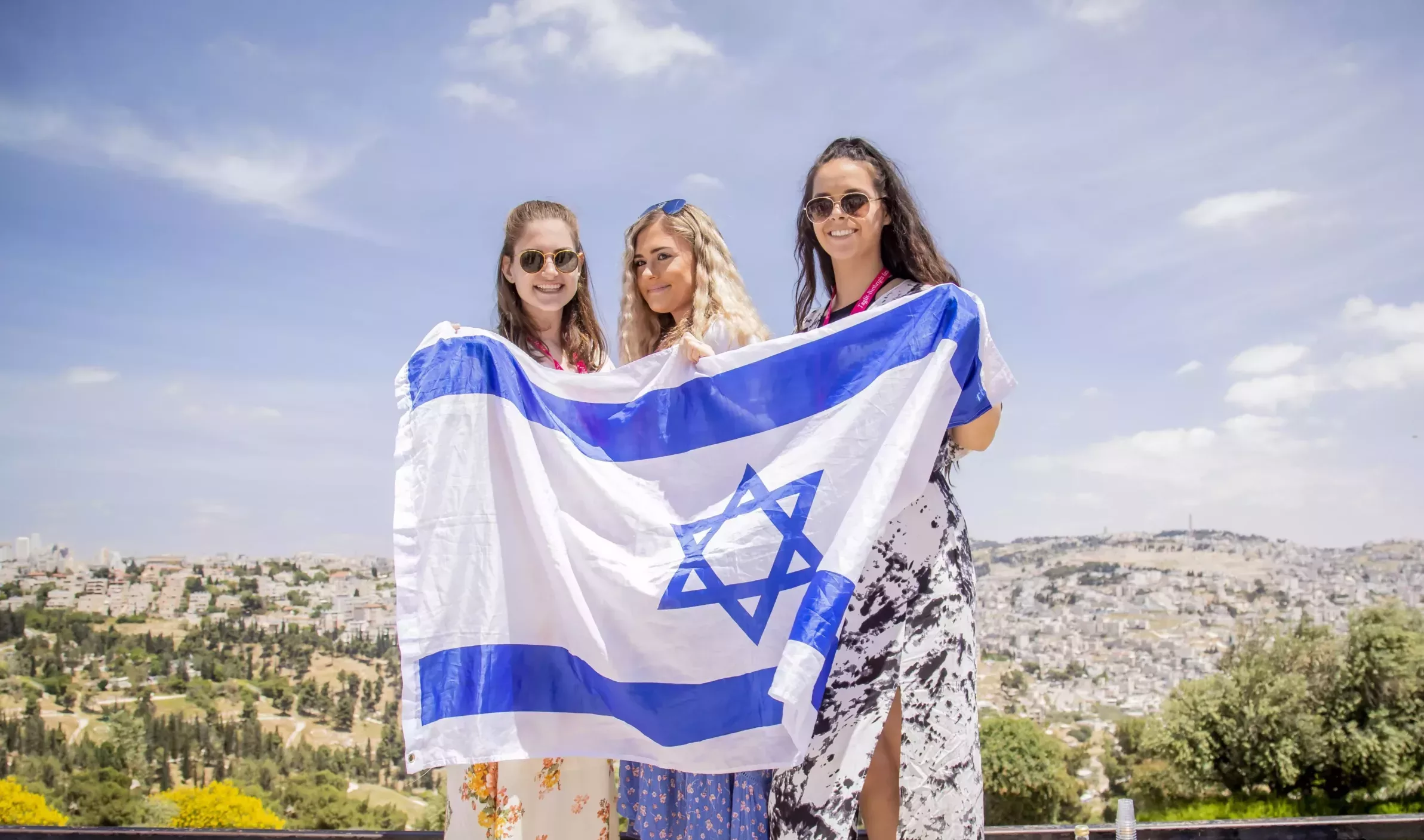I was afraid to go to Israel and then I was afraid to leave.
In the middle of Hanukkah, my stomach dropped when I got an email offering me a spot on a volunteer trip to Israel. I’d applied a few weeks prior, at which point the reality of actually booking my ticket and flying to a war zone hadn’t hit me. I had been to Israel three times but never during a war. I had never heard rocket sirens. I had seen bomb shelters across the country, but never had to run to one. Never had to lie down and cover my head with my hands, as I recently learned is the instruction if you can’t make it to a shelter in time.
On October 7th, I wept in a Las Vegas hotel room watching the fraction of footage made public from the Hamas terrorist attack—the deadliest day for Jews since the Holocaust. I flinched in the lobby when a man extended his arm over my head to fist-bump another. Thousands of miles away, my fear was paralyzing. What would it feel like on the ground, a ground still facing a constant barrage of rockets and threats of further escalation on its northern border? I would be in Tel Aviv, considered a “green” zone, the highest safety designation, yet this could only bring me so much comfort. Israel’s minute size and proximity to terrorists are difficult to comprehend from afar, but understand this: there is no ocean, but a short walk, separating Israel from its enemies. Kibbutz Nahal Oz, which faced a brutal massacre on the 7th, is less than a mile from Gaza. And rockets launched by Hamas still reach the “green” zone of Tel Aviv, which is just about forty miles from Gaza, an hour drive.
I decided to go despite my fear. And on that first night, I sat in a circle with my cohort, including Jews from around the world. We talked about why we had come. Some felt an obligation. Others were tired of merely being “keyboard warriors” and wanted to do something tangible and productive. A few admitted they’d come out of loneliness and isolation. Many shared my safety concerns, and the feeling that these concerns were distinct from any we’d had on previous trips to Israel. As a young Israeli woman put it to me, “There were always things I could be afraid of here. But before the 7th, I didn’t know getting kidnapped and taken to Gaza was an option.” Now, unimaginable horrors had become not just imaginable, but real.
For two weeks, my group volunteered on the Kfar Hess moshav, an agricultural community. Among tomato vines and grapefruit trees, we found comfort in one another. In Tel Aviv, we gathered with Israelis to stand with the hostage families. We heard from Moran Stella Yanai, a woman brought home from Hamas captivity. We cried staring at the burned cars and abandoned belongings of the Nova massacre victims, their empty shoes reminiscent of those at Yad Vashem. Our pain was intense, but here we felt it together. We stood proudly with Israeli flags, without fear of someone tearing them away to burn. We spoke loudly, without fear of being heckled or harassed. We mourned openly in a place where it is not controversial to scream BRING THEM HOME NOW. We learned the word now in Hebrew (עכשיו). We chanted it. Achshav. Achshav. Achshav. At night we enjoyed the city, its food, its sunsets, its people. We moved without looking over our shoulders. We grieved and found joy in freedom, a freedom that made us feel alive, that supplanted our fear.
On our last night, we sat again in a circle and reflected on our time in Israel. This feeling of freedom came up repeatedly. It was described as “unclenching,” as “putting down the burden” of defending our humanity. Despite our political differences, we did not have to debate whether October 7th happened. Whether women were raped. Whether it was justified. Whether we as Jews deserved what we had coming. Whether we were evil, or less than. Whether Israel has a right to exist, to defend herself. For two weeks, we could debate and discuss above the foundation that Israel and the Jews have a right to be. And because of this, some who had been scared to come, including me, were now scared to leave.
We were scared to return to places where being a Zionist, carrying an Israeli flag, hanging a mezuzah on your door, and merely being Jewish can call your morality and safety into question. How could I return to Boston, where antisemitism runs through the veins of academia? Where my own graduate professor posted a slew of anti-Israel content on X, including a visual in which New York City protesters followed a banner reading, HONOR THE MARTYRS OF PALESTINE? A volunteer from Germany told me that being in Israel, he fell asleep easily for the first time since the war began. I asked myself, unfathomably, how this Jewish boy could go back to Germany.
On my first day home, I found myself alone in an elevator with two older men. One commented that I looked tired. I stopped myself from saying I’d just gotten off a twelve hour flight, anticipating that he would ask me from where. I felt sharply my freedom disappear, felt the life in me dim. I had the sinking feeling that I hadn’t come home, but rather that I’d left it.
If I close my eyes, I can still see the sunrise flashing through the trees on the bus ride from Tel Aviv to Kfar Hess. I can still hear the boy saying from the row behind me, in his Scottish accent, “The sky is actually gold. People told me it would be. I didn’t believe them.”


